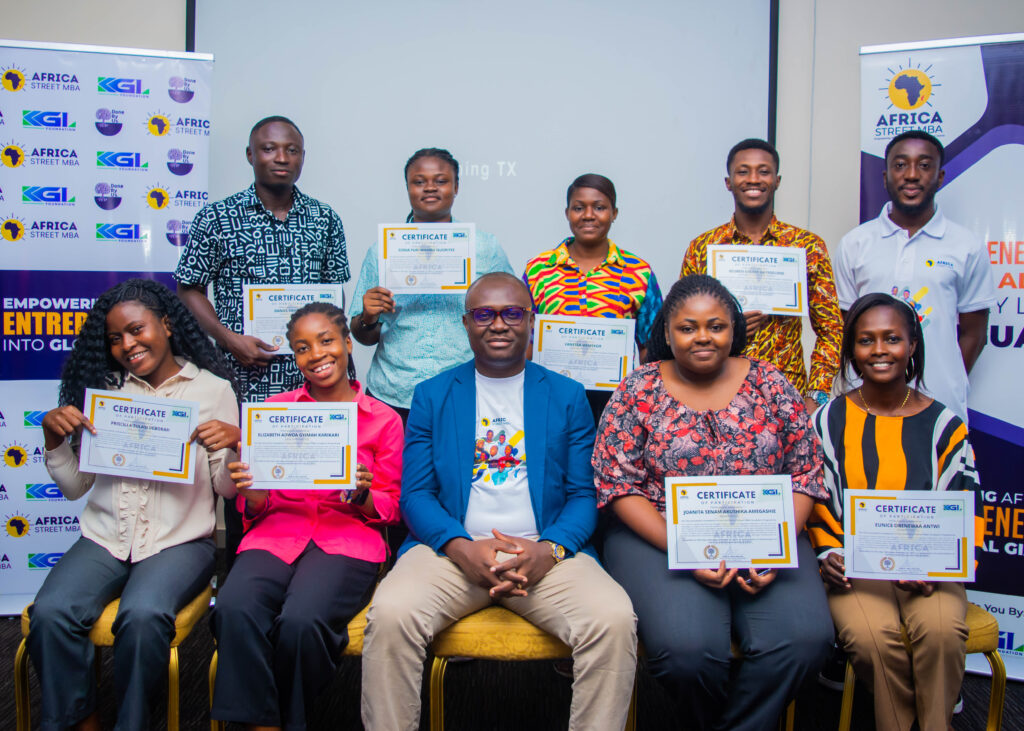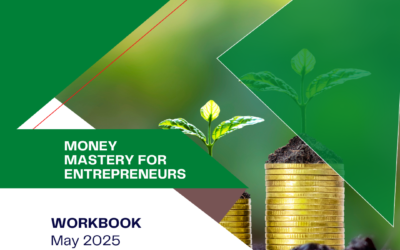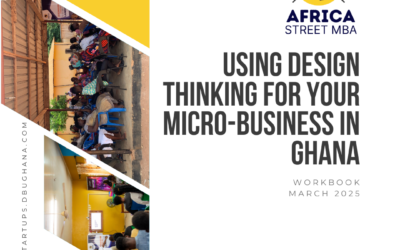Nurturing Ghana’s Entrepreneurial Future
The Africa Street MBA (AfSMBA) 2025 Incubator recently concluded, offering aspiring and early-stage Ghanaian entrepreneurs an intensive four-week experience of structured training, mentorship, and personal development. This program’s success underscores a crucial shift in how we approach entrepreneurial support in Ghana – thus, moving from fragmented, one-size-fits-all solutions toward targeted, foundational skill-building that focuses on resilience over quick capital. This model, adopted by AfSMBA, offers a blueprint for strengthening the backbone of Ghana’s economy.
Ghana’s economic vitality rests heavily on the shoulders of its Micro, Small, and Medium Enterprises (MSMEs). This sector forms the backbone of the national economy, dominating the business landscape, often accounting for the vast majority of all businesses and a significant portion of employment. However, this vital ecosystem is not without its challenges. Entrepreneurs frequently grapple with obstacles such as limited access to finance, inadequate management and operational skills, difficulties in market entry and scaling, and navigating the complexities of the regulatory environment.
Crucially, many of these challenges echo systemic issues found across emerging economies, such as fragmented service delivery and exclusionary financing criteria. Entrepreneurs in Ghana often face similar coordination gaps, skills mismatches, and bureaucratic bottlenecks that constrain their growth potential.
This is where Entrepreneurial Support Organizations (ESOs) step in, acting as essential catalysts for growth. ESOs provide the much-needed continuous learning, support, and practical guidance that is critical to an entrepreneur’s journey. While conventional support programs exist, many unintentionally exclude entrepreneurs in the informal sector, a large and often marginalized group that possesses immense, untapped potential. To truly strengthen and scale Ghanaian businesses, a more tailored and inclusive approach is paramount, one that addresses the ‘missing middle’ and provides specific support for underserved groups.
The Africa Street MBA (AfSMBA), implemented by Done By Us with the support of KGL Foundation, champions this tailored model. AfSMBA primary focus is specifically on empowering entrepreneurs, especially those in marginalized groups, by equipping them with practical skills to manage and scale their businesses. The AfSMBA 2025 Incubator, for example, is designed to give aspiring and early-stage entrepreneurs an intensive experience of structured training, mentorship, and personal development. This four-week program is a practical response to the need for developing operational resilience and management capacity from the ground up.

With a mantra of ‘Entrepreneurship For All In Every Language’, the AfSMBA model, with its emphasis on capacity building, risk management, and responsible business, offers a direct counterpoint to the common ecosystem failure of premature focus on finance alone.
The structure of the 2025 Incubator program moved methodically from strengthening the business foundation, to building for the long term through sustainability and governance. Week 1 focused on ‘Getting Your House in Order’ , tackling areas like refining the business model, operations, and mentorship. Week 2, themed ‘Scaling Your Reach’, addressed vital skills such as sales, marketing, branding, and finance for growth.
“The finance sessions were invaluable,” said Estelle Wellington, a facilitator for the Week 2 sessions. “We focused heavily on the practical side — ‘Finance for Growth’ and ‘Developing Your Pricing Strategy’ — because these are the areas where MSMEs often falter. It is about moving from survival to strategic financial thinking, a critical component often missed in generic training.”
Week 3, ‘Leading for Scale’, horned in on leadership, team building, and funding readiness. Finally, Week 4, ‘Building for the Long Term’, covered responsible business, governance, sustainability, and digital transformation , with participants developing a 12-Month Business Growth Roadmap.

The effectiveness of this model is best captured through the participants who benefited from this free entrepreneurial training on diverse topics critical to business growth.
Reuben Daliwe Agyegelone, Co-Founder of Glassroot Innovations Ghana, Ghana’s first company building glass waste management infrastructure, found the program transformative. “Before the Africa Street MBA Incubator, we had the motivational drive and an understanding of our industry, but Week 1’s focus on Building Your Business Blueprint & Developing an MVP forced me to rethink our model and gave me clear indication of how to formalize our operations. Now, we have a clear, tested framework for our growth. It gives us a stability that pure funding could never buy.”
For Elizabeth Adwoa Gyanwah Karikari of HealthyHome Kit (eco-friendly first aid kits), the strategic sessions were a highlight. “The Marketing & Branding for Growth sessions made me rethink how I connect my natural, safe products to the right customer. It wasn’t just theory; it resulted in a tangible Customer Acquisition & Retention Plan I could use immediately. The practical skills to manage and operate my business are my biggest gain.”
Vanessa Wemekor, Founder of Emie Wear Enterprise (producers of cane bags and African wear), pointed to the mentorship component. “The Mentorship Fireside Chat and Peer Exchange Circle were insightful. They focused on practical problem-solving and shared experiences, which is a rare and supportive environment for an entrepreneur in the informal fashion sector.” She further noted that “being an entrepreneur in the informal fashion sector often means working in isolation, but the Incubator has built a unique community, transforming our businesses from a daily grind into a sustainable journey.”

The 2025 AfSMBA Incubator, limited to just 10 Ghanaian entrepreneurs between 15 and 35 years old, showcases the high-impact results of a focused, commitment-driven program. The lesson for Ghana’s wider entrepreneurial ecosystem is clear: growth is a collective achievement that requires coordinated systems, not just isolated programs. We need to move from treating entrepreneurial ecosystems as emergent phenomena to actively designing them through collaborative processes.
King Adawu Wellington, Lead of Africa Street MBA, encapsulates the vision. “Our work is more than creating and supporting start-ups; it’s about raising the standard of entrepreneurship. We do not just focus on the potential of an idea; we look for the beneficiary’s commitment to growth and learning. By de-emphasizing on capital entrepreneurs will gain through our initiative and rather intensifying the needed skills they will acquire to scale and sustain their business, we are giving these young entrepreneurs the operational resilience to become the global giants they are meant to be.” “This is how you address systemic failures — by building trust, skills, and strong collaborative foundations first, so that when the funding comes, they are ready for the scale” he added.
The AfSMBA model provides practical skills and exposure to sustainable business practices and is an essential roadmap for building a more inclusive and resilient entrepreneurial future in Ghana, ensuring that no aspiring entrepreneur, especially those in the critical informal sector or identified as marginalized, is cut off from the support they need.



